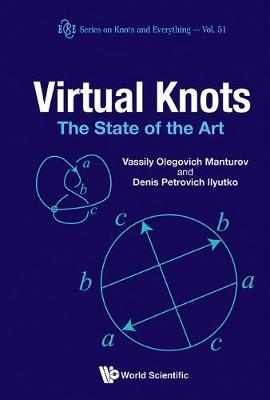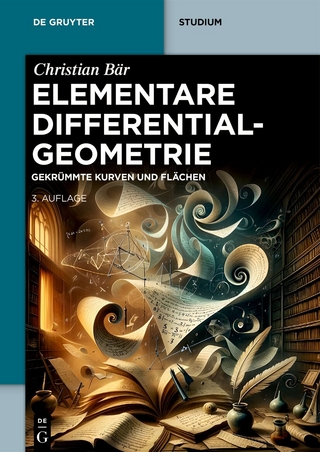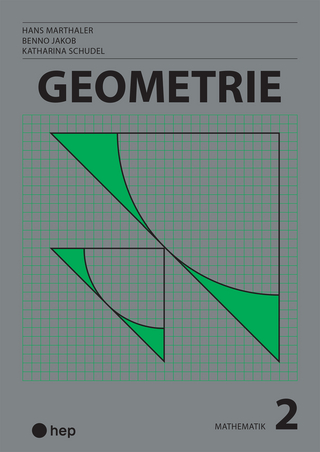
Virtual Knots: The State Of The Art
Seiten
2012
World Scientific Publishing Co Pte Ltd (Verlag)
978-981-4401-12-8 (ISBN)
World Scientific Publishing Co Pte Ltd (Verlag)
978-981-4401-12-8 (ISBN)
Provides a comprehensive study of virtual knots and classical knots. This title presents the advanced achievements in virtual knot theory including Khovanov homology theory and parity theory due to V O Manturov and graph-link theory.
The book is the first systematic research completely devoted to a comprehensive study of virtual knots and classical knots as its integral part. The book is self-contained and contains up-to-date exposition of the key aspects of virtual (and classical) knot theory.Virtual knots were discovered by Louis Kauffman in 1996. When virtual knot theory arose, it became clear that classical knot theory was a small integral part of a larger theory, and studying properties of virtual knots helped one understand better some aspects of classical knot theory and encouraged the study of further problems. Virtual knot theory finds its applications in classical knot theory. Virtual knot theory occupies an intermediate position between the theory of knots in arbitrary three-manifold and classical knot theory.In this book we present the latest achievements in virtual knot theory including Khovanov homology theory and parity theory due to V O Manturov and graph-link theory due to both authors. By means of parity, one can construct functorial mappings from knots to knots, filtrations on the space of knots, refine many invariants and prove minimality of many series of knot diagrams.Graph-links can be treated as “diagramless knot theory”: such “links” have crossings, but they do not have arcs connecting these crossings. It turns out, however, that to graph-links one can extend many methods of classical and virtual knot theories, in particular, the Khovanov homology and the parity theory.
The book is the first systematic research completely devoted to a comprehensive study of virtual knots and classical knots as its integral part. The book is self-contained and contains up-to-date exposition of the key aspects of virtual (and classical) knot theory.Virtual knots were discovered by Louis Kauffman in 1996. When virtual knot theory arose, it became clear that classical knot theory was a small integral part of a larger theory, and studying properties of virtual knots helped one understand better some aspects of classical knot theory and encouraged the study of further problems. Virtual knot theory finds its applications in classical knot theory. Virtual knot theory occupies an intermediate position between the theory of knots in arbitrary three-manifold and classical knot theory.In this book we present the latest achievements in virtual knot theory including Khovanov homology theory and parity theory due to V O Manturov and graph-link theory due to both authors. By means of parity, one can construct functorial mappings from knots to knots, filtrations on the space of knots, refine many invariants and prove minimality of many series of knot diagrams.Graph-links can be treated as “diagramless knot theory”: such “links” have crossings, but they do not have arcs connecting these crossings. It turns out, however, that to graph-links one can extend many methods of classical and virtual knot theories, in particular, the Khovanov homology and the parity theory.
Basic Definitions and Notions; Virtual Knots and Three-Dimensional Topology; Quandles (Distributive Groupoids) in Virtual Knot Theory; The Jones Polynomial. Atoms; Khovanov Homology; Virtual Braids; Vassiliev's Invariants; Parity in Knot Theory. Free-Knots. Cobordisms; Theory of Graph-Links.
| Reihe/Serie | Series on Knots & Everything ; 51 |
|---|---|
| Verlagsort | Singapore |
| Sprache | englisch |
| Themenwelt | Mathematik / Informatik ► Mathematik ► Geometrie / Topologie |
| ISBN-10 | 981-4401-12-9 / 9814401129 |
| ISBN-13 | 978-981-4401-12-8 / 9789814401128 |
| Zustand | Neuware |
| Haben Sie eine Frage zum Produkt? |
Mehr entdecken
aus dem Bereich
aus dem Bereich
Gekrümmte Kurven und Flächen
Buch | Softcover (2024)
De Gruyter (Verlag)
54,95 €
Buch | Hardcover (2023)
De Gruyter (Verlag)
149,95 €


